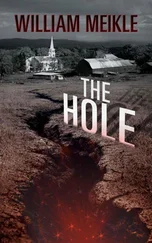William Trevor - The Hill Bachelors
Здесь есть возможность читать онлайн «William Trevor - The Hill Bachelors» весь текст электронной книги совершенно бесплатно (целиком полную версию без сокращений). В некоторых случаях можно слушать аудио, скачать через торрент в формате fb2 и присутствует краткое содержание. Год выпуска: 2001, ISBN: 2001, Издательство: Knopf Canada, Жанр: Старинная литература, на английском языке. Описание произведения, (предисловие) а так же отзывы посетителей доступны на портале библиотеки ЛибКат.
- Название:The Hill Bachelors
- Автор:
- Издательство:Knopf Canada
- Жанр:
- Год:2001
- ISBN:978-0-307-36739-6
- Рейтинг книги:5 / 5. Голосов: 1
-
Избранное:Добавить в избранное
- Отзывы:
-
Ваша оценка:
- 100
- 1
- 2
- 3
- 4
- 5
The Hill Bachelors: краткое содержание, описание и аннотация
Предлагаем к чтению аннотацию, описание, краткое содержание или предисловие (зависит от того, что написал сам автор книги «The Hill Bachelors»). Если вы не нашли необходимую информацию о книге — напишите в комментариях, мы постараемся отыскать её.
The Hill Bachelors — читать онлайн бесплатно полную книгу (весь текст) целиком
Ниже представлен текст книги, разбитый по страницам. Система сохранения места последней прочитанной страницы, позволяет с удобством читать онлайн бесплатно книгу «The Hill Bachelors», без необходимости каждый раз заново искать на чём Вы остановились. Поставьте закладку, и сможете в любой момент перейти на страницу, на которой закончили чтение.
Интервал:
Закладка:
When he had passed the last short terrace of cottages before he reached the countryside, Tom softly sang the first few lines of ‘She is Far from the Land’. The song always came to him in the territory of the lovers it celebrated; here it was that Robert Emmet and Sarah Curran had walked too. Far ahead of him, the last of the sun no longer brightened the gorse on the slopes of Kilmashogue, where their stifled romance had been a happiness. Fiery, handsome Robert Emmet, foolish insurgent; gentle Sarah. In their company, Tom thought of them as friends — here or in the deerpark below the distant gorse slopes. They had sat in its summer-house, talking of Ireland as it would one day be, and of themselves, how they’d be too. They had wandered in the future, as Tom now wandered in the past to eavesdrop in pretence. Part of today it was, the walk and being with them.
He lit a cigarette. In loving because she could not help herself, Sarah too had been a casualty of chance, beyond the battlefield yet left to bear the agony of scars you could not see. They hanged defiant Robert Emmet.
This past filled Tom’s reflections as he walked on. If beauty had come to Ireland, tranquillity was its form: a quietness in Ireland’s dark, a haven these lovers had not known. His pity was for them.
*
Philippa set the table, spreading first the bleached linen tablecloth. It had come from the house in Sallymount Avenue, as the extra knives and forks had, and the Galway glasses, and the table in the hall. But anything large — the dining-table with the leaves that could be added, the dining chairs, the carpets, the wardrobes, the sideboard — had had to go for auction because their aunt’s rooms were on the crowded side already. ‘A mistake,’ Aunt Adelaide called what had happened, as if offering that as a consolation, since there was nothing else. Often she repeated it in that same way, and she would repeat it, too, when some visitor came, someone new to the district or from the far-off past: an explanation for the presence of two children in her house. ‘A terrible mistake.’
Sausages they were having, Hafner’s of course, which Philippa had gone specially in for yesterday, saying she had things to do in Henry Street. Sausages and mashed potatoes, and glazed carrots, which recently she had learned how to do. Then steamed fig pudding, which had been steaming for an hour already, and custard. Often Philippa wondered how it would be different, cooking for a husband. She sensed it would be, as she sensed Tom’s return to the house every day would be different, but she did not know how. ‘He’s more than a brother to her,’ their aunt had always lowered her voice to inform a visitor. ‘Well, being older, of course.’
She made up mustard, mixing it in the small blue glass that lined the silver container. They’d listened at the banisters when Joe Paddy came knocking wildly at the door. Supposed to be in bed, they crouched there, and their father said what Joe Paddy needed was a drink, Joe Paddy shouting all the while that a man was after him, their mother calming him, saying the Troubles were all over now. He’d been in himself to see, their father said: Dublin had gone quiet after the carnage. He had stood and seen the surrender in the name of peace; there was nothing to be frightened of now. But Joe Paddy kept saying a man was after him.
She pricked the sausages and laid them on the fat that had gone liquid in the pan. ‘If the man comes we’ll explain to him,’ their mother said. ‘We’ll explain you weren’t in any of it, Joe Paddy.’ And then the voices became murmurs, passing from the hall. She was asleep when there was shouting in the garden and she couldn’t remember what anything was about. They went to the window to look out and there the man was, in a soldier’s uniform. ‘We’ll explain,’ their mother repeated, in the hall again. ‘You stay where you are, boy,’ their father said. ‘You take another drink.’
The sausages fried slowly. She put the potatoes on. Tom would mash them when they were ready, and add a butter pat and chives. ‘I’m going to try for the Bank of Ireland,’ Tom had said, pleasing Aunt Adelaide because their father, too, had tried for the Bank of Ireland, and been employed for all his adult life in the architectural splendour of the College Green office, as Tom was now. ‘You’ll have the house, of course,’ Aunt Adelaide had said, months before she died.
From the kitchen window Philippa saw Tom in the garden again. He often returned from a walk like that, by the side door, not coming into the house at once, strolling about, dead-heading if the season called for that. She washed the parsley he’d earlier picked for her, and chopped it finely, ready for the carrots, the two bright colours of the tricolour — she’d never noticed that until Tom said one suppertime. He’d taken her away from the window and she’d whispered, ‘Poor Joe Paddy!’ because she was confused, and he said no, it wasn’t Joe Paddy who’d been shot. She asked him then and he said: because he had to, because she had to know. He hadn’t let her look.
‘Would you like a sherry?’ Tom was suddenly there, as earlier he’d been when he’d told her he’d finished his book.
‘Sherry would be nice,’ she said.
Anglesea Street, she thought, a little flat in Anglesea Street, plumb in the middle of Dublin. She’d always been attracted by that narrow street, not far from Tom’s office, not far from Jury’s Hotel, where sometimes they met for a cup of coffee in his lunchtime. They’d still do that, of course, and as often as she was welcome she’d visit Rathfarnham — at weekends, Saturday lunch, whatever was convenient. She could say so now; it was a time to do so, while they drank their sherry.
‘There was an old man I don’t remember seeing before,’ Tom said. ‘By the bridge.’
‘He’s come to live with the Mulcahys. Her father.’
‘Ah.’
Children would run about the garden again. There would be their laughter, and family birthdays. She would bring her presents, and with the years Tom would slip into their father’s role and be like him too, easygoing, with jokes to tell. The children would tell her things, have secrets with her, as sometimes children did with an aunt.
She heard the clink of the decanter’s stopper, the sherry poured, and then Tom brought the two glasses from the dining-room. It was extraordinary that the officer who came had wept in front of them. He had alarmed them, weeping so suddenly, so unnaturally, the brick-hued flesh of his heavy face crumpling into dismay and grief. ‘The waste of it,’ he mumbled. ‘The waste of it.’ The soldier who had gone berserk in mistaking Joe Paddy for someone else had suffered shell-shock. His officer — in charge of him, responsible, he wretchedly insisted — could hardly explain, so clogged with emotion his voice was. He did not know, for it did not concern him, that Joe Paddy’s connection with the house he’d sought refuge in when he was pursued through the streets was as tenuous as the unbalanced soldier’s was with Joe Paddy: once every two months or so Joe Paddy came to clean its windows. Madness and death: that’s how it was in war, this big, ruddy officer had said. As long as he lived, he made a kind of promise, he would not be able to forget what had happened in a suburban garden.
‘We’re nearly ready,’ Philippa said in the kitchen, but her brother made her pause for a moment to sip her sherry while he mashed the potatoes and sprinkled in the chopped-up chives.
‘Tom,’ she said and found it difficult to continue, and he smiled at her as if he perfectly divined her thoughts. He even slightly shook his head, although she was not entirely sure about that and perhaps he didn’t. Intent upon his task again, he turned away and she did not continue.
Читать дальшеИнтервал:
Закладка:
Похожие книги на «The Hill Bachelors»
Представляем Вашему вниманию похожие книги на «The Hill Bachelors» списком для выбора. Мы отобрали схожую по названию и смыслу литературу в надежде предоставить читателям больше вариантов отыскать новые, интересные, ещё непрочитанные произведения.
Обсуждение, отзывы о книге «The Hill Bachelors» и просто собственные мнения читателей. Оставьте ваши комментарии, напишите, что Вы думаете о произведении, его смысле или главных героях. Укажите что конкретно понравилось, а что нет, и почему Вы так считаете.










